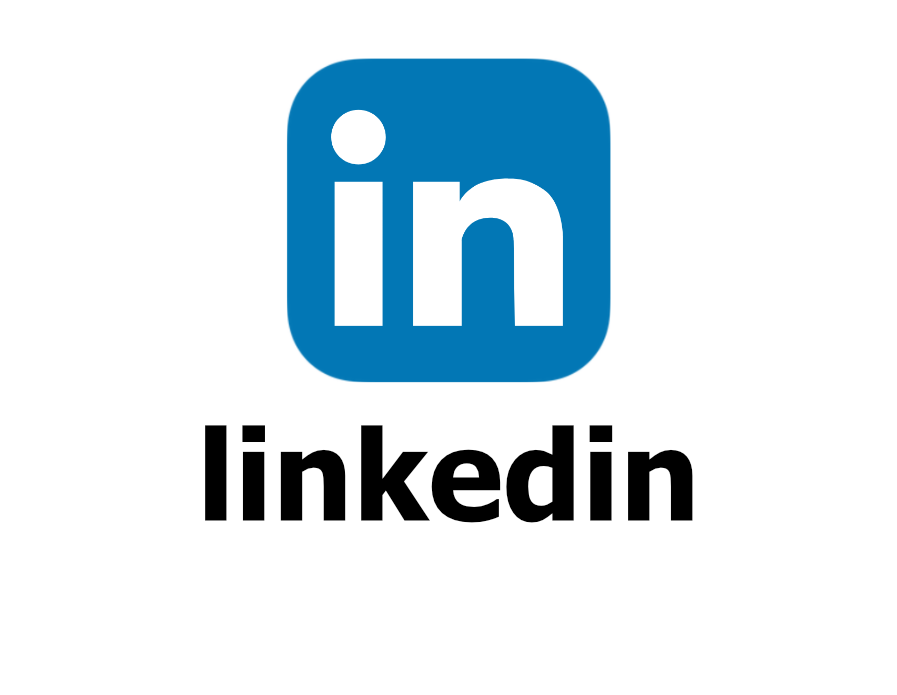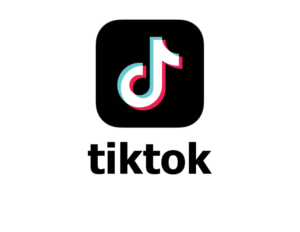If you are in high school and want to take control of your future, you have come to the right section. This pathway will help you to consider the resources available to you to jump-start your way to the job that you want. Look alone or with partners, but make sure to loop in the adults in your life who care that you succeed. The ideas here assume that you already have taken the steps outlined in the opening letter. If not, go back and take a quick read. You will not regret it!
Vocational Considerations
Your IEP and Transition Plan
By high school, you have reached the moment when you can begin to look at goals that you have for your career and figure out how to make them happen. One of the first steps to ensuring success is to make sure your Individualized Education Program (IEP) and transition plan reflect your goals, and that your education team is working together in support of your goals.
If you do not have an IEP or transition plan, you must first request evaluation or provide proof of your disability, and then request an IEP from your school system. If you encounter resistance with this, you might be able to seek help from any of the following organizations:
- California Council of the Blind: The council exists to advance the interests and protect the independence of blind and low-vision Californians. This membership-based organization has local branches in Glendale/Burbank, Greater Lakewood, Greater Long Beach, Greater Los Angeles, Orange County, San Bernardino, and San Gabriel Valley. Appendix C includes contact information for each of these chapters.
- Disability Rights Legal Center (DRLC): Since the 1970s, DRLC has been an advocacy nonprofit focused on advancing the civil rights of people with disabilities and addressing other legal barriers impacting the disability community. By working on both individual and class action court cases, DRLC challenges discrimination and advances change.
- Learning Rights Law Center: With a special focus on protecting equal access to education, Learning Rights Law Center supports students with disabilities, their families and their communities. They also provide free or low-cost legal representation when needed to ensure educational equity and help underserved families in Los Angeles.
- Public Counsel: Part of the nation’s largest pro bono law firm, Public Counsel’s Children’s Rights Project supports and protects low-income children, older youth and their families across a wide range of legal matters. Practice Areas include specialized training for attorneys, supporting foster care youth, defending education rights, managing guardianship clinics, and advocacy for children with developmental disabilities.
- Team of Advocates for Special Kids (TASK): TASK is a nonprofit organization that supports children with disabilities up to age 21 and their families. TASK supports include special education support, assistive technology services and direct support for parents of students with disabilities. TASK operates a Parent Training and Information Center (PTI) that directly supports families in Imperial, Los Angeles, Orange, Riverside, San Diego and Ventura counties. TASK provides support and advocacy for parents in English, Spanish and Vietnamese.
The first step in making sure your IEP and transition plan reflect your goals is that you can attend your own IEP meeting. Becoming part of the conversation and advocating for yourself is a skill you will need for the rest of your life. As much as the IEP meeting is a place to plan your education, attending the meeting is part of your education. Once you are there, make sure your goals are introduced in the conversation. Your parent or guardian, who also should be at the meeting, should be able to help you with this, but if you feel you may not be receiving the support you need and deserve, you could consult one of the organizations above. The goal of an IEP is to make sure you have the education you need to prepare for life. Your transition plan is there to help create a pathway to the success you want in work and life. Taking your vocational goals into account is a big part of both your IEP and transition plan and can be a major contributor to your success.
Assistive Technology
Be sure to ask about services provided by your high school. This could include strategies in your classes and introducing new assistive technology to help you succeed. However, do not always assume that the school knows every possible solution. Here are some organizations that might be able to help you explore technology, such as voice recognition, which could help you to more easily complete your work in school and in the job you want. Appendix I includes additional resources, including captioning services and ASL interpreters.
- Bookshare: A special project supported with federal funding the Office of Special Education Programs at the U.S. Department of Education, Bookshare® is an eBook library with more than 898,000 accessible titles to choose from in more than 34 different languages.
- Braille Institute of America: A nonprofit organization dedicated to meeting the unique needs of people with vision loss, the Braille Institute provides a range of free programs, services and learning experiences to thousands of students. The Institute has served more than 37,000 people and has locations throughout Southern California. Because of the COVID-19 pandemic, the Braille Institute has switched to an all online service model. More information is available on their website: brailleinstitute.org/coronavirus.
- California Council of the Blind: The council exists to advance the interests and protect the independence of blind and low-vision Californians. This membership-based organization has local branches in Glendale/Burbank, Greater Lakewood, Greater Long Beach, Greater Los Angeles, Orange County, San Bernardino, and San Gabriel Valley. Please see Appendix C for contact information for each of these chapters.
- Center for Applied Rehabilitation Technology (CART) Rancho Los Amigos National Rehabilitation Center: CART advances independent living for youth and adults with physical disabilities by connecting them with assistive technology, which can be a game changer to help people with disabilities better integrated into their communities and enter the workforce. Priority areas for CART include seating and mobility devices, Augmentative and Alternative Communication (AAC) systems, software or hardware adaptations, Electronic Aids to Daily Living (EADLs), worksite evaluations as well as model homes that integrate assistive technology solutions. Services are eligible for individuals with physical disabilities as well as for people with multiple disabilities.
- Deaf and Disabled Telecommunications Program (DDTP): DDTP, operated by the California Public Utilities Commission, ensures that Californians who are deaf or hard of hearing can have access to telecommunications technologies. DDTP is composed of the California Relay Service (CRS), which provides telephone relay support, and the California Telephone Access Program (CTAP), which provides accessories for qualified individuals. Relay services are available in both English and Spanish. You can learn more about CRS on their website: https://ddtp.cpuc.ca.gov/default1.aspx?id=1482. To learn more about CTAP or apply for services, please visit: https://californiaphones.org/apply-now.
- EmpowerTech: EmpowerTech is a Los Angeles-based nonprofit organization that helps people with physical and developmental disabilities use assistive technology to live their lives, integrate into their communities and succeed at their jobs. EmpowerTech matches individual needs to state-of-the-art software and the latest hardware solutions.
California Department of Rehabilitation
This is also the time when you want to connect to the California Department of Rehabilitation (DOR). DOR will ask you to set a job goal and provide services to help you get there. This could include help with accommodations, paying for a college education, creating a career development plan, job exploration, skills and self-advocacy training, and opportunities for job experience. To be eligible for these services as a student, you must be enrolled in a school, between the ages of 16–21 and:
- Have a 504 plan or an IEP or be eligible for one.
- Have a disability.
- Be regarded by others as having a disability.
If you think this fits for you, you and your family need to start by filling out a Student Service Plan Request (dor.ca.gov/Content/DorIncludes/documents/Forms/DR203-DOR-Student-Services-Request.pdf) and forward it to your local DOR Office. You can locate that office at www.dor.ca.gov/Home/FindAnOffice by inputting your ZIP Code or referring to our list of DOR offices in Los Angeles County in Appendix A. Per COVID-19 guidance, the first step is to contact your local office by phone.
Mentorship
At all points in your life, you will gain tremendous value from mentors, people who have done what you are trying to do and can help you learn from their experience. A mentor can help you navigate life with your disability and build the confidence that comes from someone who has succeeded at what you are trying to accomplish.
There are many programs that provide mentorship opportunities for young people with disabilities. You should start by looking at the National Disability Mentoring Coalition, which aims to increase the awareness, quality and impact of mentoring for individuals with disabilities nationwide.
Skills Training
It is never too early to learn some of the skills that will help you in the jobs you want to do. There are many job counseling and skills training services available for teenagers and young adults. Below are some of the organizations providing them:
- Bridge-to-Work Foster: Bridge-to-Work Foster is a Workforce Innovation and Opportunity Act-funded program that directly supports foster care youth, former foster youth and probation youth eligible for the Independent Living Program through the Los Angeles County Department of Children and Family Services. This program directly works with youth to assess their skills, identify career interests and connect with work opportunities.
- Braille Institute of America: A nonprofit organization dedicated to meeting the unique needs of people with vision loss, the Braille Institute provides a range of free programs, services and learning experiences to thousands of students. The Institute has served more than 37,000 people and has locations throughout Southern California. Because of the COVID-19 pandemic, the Braille Institute has switched to an all online service model. More information is available on their website: brailleinstitute.org/coronavirus.
- Bridges from School to Work – Los Angeles: Bridges from School to Work, established in 1989 by the Marriott Foundation for People with Disabilities, provides critical workforce services to in-school and out-of-school youth with disabilities. Bridges staff work directly with youth to improve their soft skills, increase their knowledge, navigate the job-hunting process and become job ready.
- California Council of the Blind: The council exists to advance the interests and protect the independence of blind and low-vision Californians. This membership-based organization has local branches in Glendale/Burbank, Greater Lakewood, Greater Long Beach, Greater Los Angeles, Orange County, San Bernardino, and San Gabriel Valley. Please see Appendix C for contact information for each of these chapters.
- JVS SoCal: JVS SoCal is an eight-decade old workforce services provider that has long been an innovator in terms of workforce development solutions and services provided to Angelenos with a range of barriers to work. JVS provides a range of specialized services in different categories such as tuition career training, specialized services for veterans, and support for immigrant/refugee job seekers. For job seekers with disabilities, JVS operates an internationally accredited skills assessment center.
- L.A. Youth at Work (LAYAW): L.A. Youth at Work (LAYAW) is UNITE-LA’s signature initiative to ensure that young Angelenos receive job training and work-based learning opportunities. LAYAW acts as a connector between the local business community and job ready applicants.
- Project SEARCH: Project SEARCH is a proven business-led program where students with intellectual and developmental disabilities get hands on real-world job skills in their final year of high school. Businesses that participate are un-subsidized and incorporate the talents of the students with disabilities fully into their office. In the greater Los Angeles metropolitan area, the Kaiser Permanente West Los Angeles Medical Center, Ronald Reagan UCLA Medical Center, and Children’s Hospital Los Angeles all currently host Project SEARCH interns. For more information about Project SEARCH, learn more here: projectsearch.us/find-a-program.
Some American Job Centers of California (AJCC) locations also provide job search and mentoring programs for youths. These are often called YouthSource Centers. You can find their contact information in Appendix B.
Post-secondary training (training after high school) also may be a path to get to where you want to go. There are programs to help you find such training and education, including:
- California Council of the Blind: The council exists to advance the interests and protect the independence of blind and low vision Californians. This membership-based organization has local branches in Glendale/Burbank, Greater Lakewood, Greater Long Beach, Greater Los Angeles, Orange County, San Bernardino, and San Gabriel Valley. Please see Appendix C for contact information for each of these chapters.
- JVS SoCal: JVS SoCal is an eight-decade-old workforce services provider that has long been an innovator in terms of workforce development solutions and services provided to Angelenos with a range of barriers to work. JVS provides a range of specialized services in different categories such as tuition career training, specialized services for veterans, and support for immigrant/refugee job seekers. For job seekers with disabilities, JVS operates an internationally accredited skills assessment center.
- NBCUniversal Tony Coelho Media Scholarship: A signature program of the American Association of People with Disabilities (AAPD), the NBCUniversal Tony Coelho Media Scholarship directly supports students with disabilities who want to pursue their dream jobs in the world of communications, in the media, or in the entertainment industry.
- South Bay Promise: South Bay Promise is a college affordability pathway offered by El Camino College for qualified high school graduates which focuses on promoting college readiness and removing key financial barriers to higher education.
- South Bay Workforce Investment Board (SBWIB) Teen Centers: Operated by SBWIB, the Hawthorne and Inglewood Teen Centers provide critical post-secondary workforce services to young Angelenos. Services include paid work experiences, career mentoring, soft-skill development and guidance on pursuing higher education programs.
Learning More About Navigating Your Own Disability
You also may find as you go through this process that it is helpful to meet people with similar disabilities to your own for mentorship, strategies, resources, and friendship. Appendix D provides a great list to get started. For additional resources that may be relevant, please check 211 for government resources provided in Los Angeles County. This service can be a massive help on many fronts.









